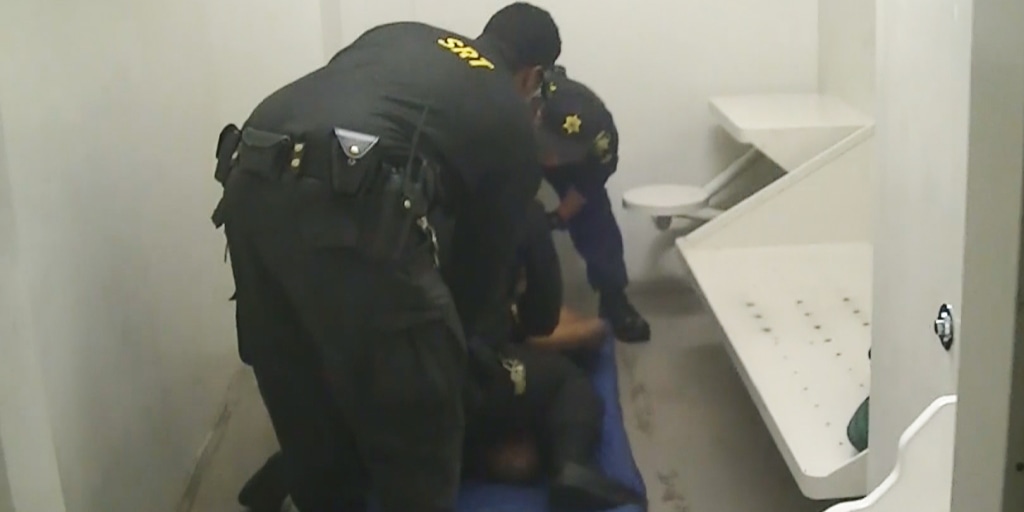
BREAKING: Forsyth County Jail Inmate Dies After Alleged Restraint Incident; Officers and Nurse Charged

In a tragic case that has sparked outrage and demands for justice across North Carolina and beyond, the death of John Neville—a 56-year-old inmate at the Forsyth County Jail in Winston-Salem—has led to the indictment of five detention officers and a nurse. The incident, which dates back to December 2019 but continues to resonate today, is now widely viewed as a glaring example of systemic failure within the U.S. correctional system.
Neville was arrested by Kernersville police on December 1, 2019, on charges of assault. He was later booked into the Forsyth County Detention Center, where, just one day after his arrival, he suffered a medical emergency that escalated into a fatal encounter. According to reports and video evidence, Neville fell from his bunk bed and began showing signs of medical distress—sweating, vomiting, and convulsing. Despite these alarming symptoms, officers and medical personnel reportedly failed to take immediate action to ensure his safety.
Instead, Neville was restrained and transferred to a different cell, placed in a restraint chair, and handcuffed while lying on his stomach—a position known to restrict breathing. During the transfer and restraint, Neville pleaded repeatedly, “I can’t breathe,” echoing words that have come to symbolize institutional brutality in recent years. His cries were reportedly ignored, and within minutes, he became unresponsive.
Neville was eventually transported to Wake Forest Baptist Medical Center, where he died two days later, on December 4, 2019. An autopsy revealed that he died from a brain injury caused by asphyxia—essentially, his brain was deprived of oxygen while he was restrained on the ground.
Following a lengthy investigation and mounting public pressure, Forsyth County prosecutors brought charges of involuntary manslaughter against six individuals involved in the incident. Those charged include detention officers Sarah Poole, Cpl. Edward Roussel, Christopher Stamper, Sgt. Lovette Williams, and Antonio Woodley, as well as nurse Michelle Heughins. Each is accused of failing to act appropriately as Neville’s condition worsened and of contributing to his death through neglect and improper restraint techniques.
In a statement issued by the Forsyth County District Attorney’s Office, officials said: “These charges reflect our belief that Mr. Neville’s death could have been prevented. While this is a difficult and emotional matter, accountability is essential.”
Public response has been swift and emotional, with civil rights groups, local activists, and community members calling for deeper reform within correctional institutions. Many have pointed to the incident as part of a broader pattern of abuse and neglect within jails and prisons nationwide—especially when it comes to the treatment of individuals in medical or mental health crises.
Neville’s family, devastated by the events and determined to seek justice, filed a wrongful death lawsuit against Forsyth County. That lawsuit was later settled for $3 million, though family members insist that no financial compensation can replace the life lost. “Our father deserved compassion and care. Instead, he was treated like he didn’t matter,” said Neville’s son in a public statement.
In response to the incident, the Forsyth County Sheriff’s Office announced several reforms, including changes in restraint protocols, enhanced staff training on medical emergencies, and stricter oversight of inmate care. While these steps were welcomed by some, others believe they fall short of addressing the systemic issues at play.
As the legal proceedings against the charged officers and nurse continue, the case of John Neville remains a powerful reminder of the urgent need for reform in America’s criminal justice and corrections systems. His story has now joined a growing list of lives lost under questionable circumstances while in custody, prompting renewed calls for transparency, accountability, and above all—humanity—in the treatment of incarcerated individuals.




